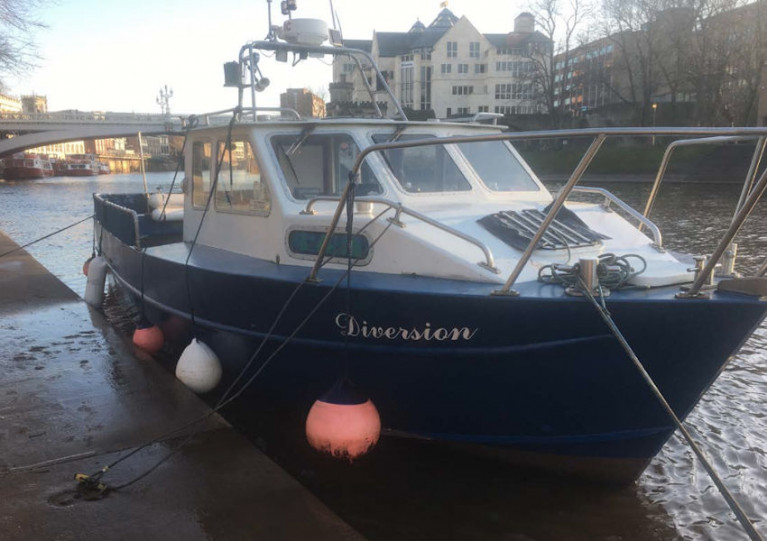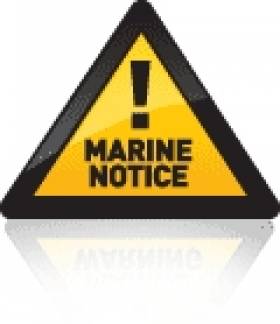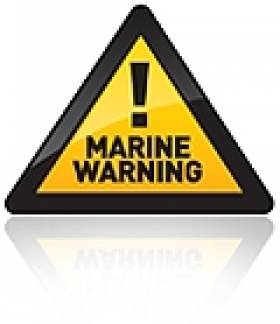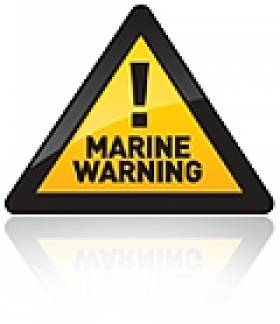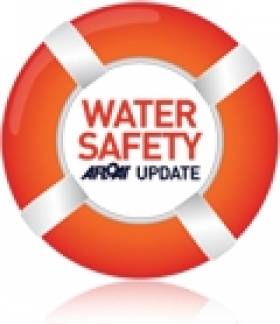Displaying items by tag: Carbon Monoxide
New Safety Bulletin on Dangers of Carbon Monoxide Poisoning After Deaths of Two Boaters in UK
Britain’s Marine Accident Investigation Branch (MAIB) has published a safety bulletin with lessons learnt from its initial findings into the death of two friends from carbon monoxide poisoning on a boat in York.
The boaters died in December 2019 when the improvised and mismatched cabin heater installation leaked exhaust gas, resulting in lethal amounts of toxic CO being pumped into the cabin near the steering position of their vessel, Diversion, on the River Ouse.
Leaking gas and the fact that there was no working carbon monoxide alarm aboard may have led to the poisoning of the men’s blood systems without them having any warning.
The UK’s Boat Safety Scheme is now urging boaters to read the new bulletin and adopt its safety advice immediately.
It joins the MIAB in asking boaters to install and maintain appropriate appliances safely, and have at least one suitable working carbon monoxide (CO) alarm properly installed aboard — preferably meeting safety standard EN 50291-2:2010.
Both organisations strongly recommend that any fuel-burning systems should also be checked routinely by competent engineers, at least annually, and any faults found addressed without delay.
Boats with permanent accommodation space on the UK’s waterways covered by the Boat Safety Scheme requirements must have at least one suitable carbon monoxide alarm installed.
“Carbon monoxide is a silent killer and staying alive can mean recognising any early signs of poisoning and knowing what to do if CO poisoning is suspected,” said BSS manager Kevin Tyson.
“It’s critical that boaters fully take on board the potential dangers of carbon monoxide. It cannot be seen, smelt, tasted, or felt and in high concentrations, CO can kill without warning, sometimes in only minutes.
“Even breathing-in lower levels of CO over a longer period, can have serious effects such as memory problems and difficulty concentrating,” he added.
Any carbon-fuel-burning appliance or engine can release carbon monoxide. Carbon fuels include but are not limited to diesel, petrol, gas, coal, wood and charcoal.
BBQ on Board Can Pose A Danger from the 'Silent Killer'
#carbonmonoxideboats – Whether at home or on holiday, summer is BBQ time but they can pose a real risk of carbon monoxide poisoning if used in poorly ventilated or confined areas like inside a tent or the awning of a caravan. Timely advice comes from the UK's Building & Engineering Services Association (B&ES).
Too many families are still unaware of the carbon monoxide poisoning risks involved with taking lit or smouldering BBQs inside tents, awnings or caravans; barbecue charcoal can smoulder for hours after lighting and the remaining ash could also start a fire. Even at home, a BBQ used in a sheltered or confined area can pose a danger from the "silent killer." That's according to new advice just issued by the Building & Engineering Services Association (B&ES).
B&ES spokesman, Mark Oakes, comments, "Families going camping or caravanning in the coming months need to be aware that carbon monoxide can build up very quickly in enclosed spaces, such as tents and awnings, to levels that can kill. And with the sudden chill of evening they might be tempted to use the still burning coals of a BBQ for warmth, but this could prove fatal – BBQs should never be used or left inside tents or awnings once they have been lit. Even at home there can be a danger, for example taking a BBQ inside a garage or car port if it starts to rain.
"Carbon monoxide is an odourless, colourless, non-irritant gas. It is the most common cause of fatal poisoning in the UK, with 40 people each year being killed by it and hundreds more made seriously ill. Although most incidents happen in the home there is a risk from exposure in holiday accommodation, caravans, motor homes, tents and boats as these often use fuel burning appliances in what can be a poorly ventilated area. Wherever you are using a BBQ, follow these essential safety guidelines:
Never take a smouldering or lit BBQ into a tent, caravan or cabin. Even if you have finished cooking, your BBQ should remain outside as it will still give off fumes for some hours after use.
BBQs need to be lit with the correct lighter fuel and placed in a position where the fire does not spread to wooden fences, sheds or conifers.
Never use a BBQ inside to keep you warm.
Never leave a lit BBQ unattended or while sleeping.
Place your cooking area well away from your tent. Always ensure there is an adequate supply of fresh air in the area where the BBQ is being used.
Always take a portable, battery operated CO alarm away with you on holiday – they can be purchased for as little as €15.
Boat Safety – How to Avoid Carbon Monoxide (CO) Poisoning
#carbonmonoxide – There have been a number of fatalities from carbon monoxide poisoning in recent years on leisure and working craft. Gas Networks Ireland say follow these simple steps to protect yourself and others on your vessel from the "silent killer":
• Carbon monoxide can be produced by burning any fuel, including diesel, oil, gas, wood and coal. Think of the appliances on your vessel that burn fuel – for example engines, generators, stoves and heaters etc.
• Remember fumes can build up in the cabin, or at the back platform of a boat, particularly at slow speeds or whilst idling in the water.
• Swimming near or under the back deck/ platform should be avoided.
• Your vessel should be a minimum of 6 m (20 feet) from a nearby vessel running a generator or engine.
• Make sure flues and exhaust outlets are clear and well vented.
• Ensure any gas/ LPG appliances are suitable for boats and are installed and serviced by a Registered Gas Installer.
• Install one or more carbon monoxide alarms in accommodation areas and test them regularly.
• Know the signs and symptoms of Carbon Monoxide Poisoning.
If you suspect that anyone on board is experiencing symptoms of carbon monoxide, you should contact a doctor immediately.
For further information please see www.carbonmonoxide.ie or call 1850 79 79 79
Carbon Monoxide Awareness Week Launched, Risks of leaks on Vessels with Sleeping Berths
#carbonmonoxide – Minister for Energy, Pat Rabbitte, today launched Ireland's second Carbon Monoxide Awareness Week (23rd-29th September), a week that also includes a safety awareness message for the boating public too. In May, the deaths of a mother and daughter in Britain's Lake District highlighted the need for awareness of the risk of carbon monoxide leaks on cruisers and other vessels with sleeping berths.
The Minister expressed his satisfaction that following the high profile experienced by last year's Awareness week, it is now an annual event. He said, "At last year's launch event, we heard first-hand testimony of the effects that a death from carbon monoxide poisoning can have on a family, and I have since been surprised to find out how many people have lost a family member to, or been themselves affected by, this silent killer. We continue to experience, on an annual basis, awful tragedies due to the insidious nature of carbon monoxide."
Carbon Monoxide Awareness Week is an initiative by organisations active in Energy and related industries with a view to educating the public about the dangers of carbon monoxide poisoning. Each campaign focuses in particular on preventative measures that the public can implement to considerably reduce the danger levels.
Up to six people in Ireland die every year from accidental CO poisoning according to figures compiled by the HSE. CO is poisonous, colourless and odourless. It is produced when carbon-based fuels such as oil, gas, wood or coal do not have enough oxygen to burn completely.
Minister Rabbitte commended the efforts of the energy industry to tackle this problem, "The Energy industry, working with government departments, state bodies and the National Standards Authority of Ireland, continues, through the Gas Technical Standards Committee, to ensure that there are appropriate standards in place, including those relating to carbon monoxide alarms. The last two years have seen large improvements in device performance and in their use. It is my hope that the activities of this week will further raise public awareness of the perils of carbon monoxide and save lives."
Further information on Carbon Monoxide Awareness Week is available on www.carbonmonoxide.ie or by contacting 1850 79 79 79.
#Safety - The deaths of a mother and daughter in Britain's Lake District have highlighted the need for awareness of the risk of carbon monoxide leaks on cruisers and other vessels with sleeping berths.
As The Guardian reports, 36-year-old Kelly Webster and her 10-year-old daughter Laura Thornton died in their sleep on board a moored motor cruiser in Lake Windermere over the Easter bank holiday.
The interim report into the incident by the UK's Marine Accident Investigation Branch (MAIB) released this week confirms that fumes from a jury-rigged generator exhaust spread into the cabin of the boat belonging to Webster's partner Matthew Eteson, who survived.
It was also pointed out that the boat's carbon monoxide sensor did not set off an alarm because it was not connected to a power supply.
The boat had been installed with a portable petrol-driven generator of the kind normally only intended for use in the open air.
"The use or permanent installation of these engines on boats, particularly in enclosed spaces or below decks, increases the risk of carbon monoxide poisoning," the report added.
Just a week after the tragedy, BBC News reported that a woman and two children were taken to hospital to be treated for suspected carbon monoxide poisoning after a similar incident on a boat on the same lake.
Following the latest news, Bord Gáis Networks has provided guidance for keeping aware of the dangers of fumes from gas or fuel-powered generators, heaters or cookers.
Boaters are urged to think of the appliances on their vessels and whether they burn fuel oil, gas, LPG, wood or coal, which all produce carbon monoxide by burning.
Carbon monoxide becomes a hazard when there is not enough air flow to burn the fuel properly - more likely in an enclosed space such as a boat cabin - so ventilation is very important.
Make sure all flues and exhaust outlets are clear and ventilated, and ensure any appliances used are suitable for boats and serviced annually by a qualified agent.
Boat-owners are reminded of the good practice of installing a carbon monoxide alarm, and to know the signs of carbon monoxide poisoning - which include headache and dizziness, leading to loss of judgement, nausea, possible convulsions and elevated heartbeat.


























